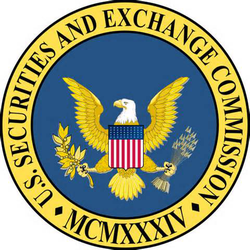The SEC claims to have rewarded a whistleblower with $17m as it is the most efficient way to regulate

On 9 June, the SEC made an announcement on its website.
- The Regulator itself issued the amount of the award to a whistleblower for having providing it with
information . Why is that? One would usually take a lower profile when awarding this much money ($17m) to an informer… Conversely, the Regulator immediately and publicly announced it in a press release, which pretty looked like a tender offer for further denunciations. It even included a link for everyone toaccess the whistleblower program—which is easily funded, since the awards are charged on the fines imposed on the convicted operators thanks to theinformation given.
- The reason for this is that
information from whistleblowers is not merely indicative, nor a second-best option; it is central to Regulation, since it leads the Regulator to getinformation people within the system (i.e., insiders) deliberately chooses to ‘blow’ (in fact, not only do informers blow the whistle—they often immediately provide the Regulator with substantialinformation ).
- The press release includes justifications for the Regulator’s behaviour, as the SEC openly considers that rewarding whistleblowers is the most efficient way for the Regulator to open or to resolve investigations. The Director of the SEC’s Division of Enforcement stated indeed that “company insiders are uniquely positioned to protect investors and blow the whistle on a company’s wrongdoing by providing key
information to the SEC so we can investigate the full extent of the violations”.
- This highlights the ambivalence of insiders. Accordingly, they need to be ‘inside’ the system to be ‘knowledgeable’ and, consequently, obtain privileged
information . On the one hand, should they use thisinformation for themselves, then they would face prosecution for market abuse; on the other hand, however, if they use it to stir up the Regulator and shift its attention towards the whistle they’re blowing, then they may earn just as much money, if not more, than if they had behaved in a way that would have led them to prison.
The stage is thus set for the "business of virtue" to thrive.


comments are disabled for this article